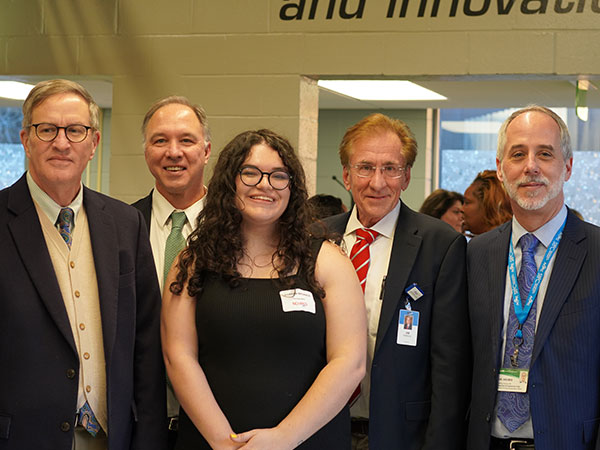An amazing event happened the week before last in UAB’s Wellness, Health and Research Facility, WHARF. A young lady by the name of Harper Nichols, a recent graduate of UAB, transformed the building into a living, breathing culture of disability art.
 This talented young woman brought to life the faces, expressions and stories of people with disabilities who volunteered to be a part of her exhibit. What started out as a small request, “Can you photo people with disabilities for display in our new building?” blossomed into an historic event with a dozen or more staff working for months to bring to life this first-ever disability art exhibit in the WHARF.
This talented young woman brought to life the faces, expressions and stories of people with disabilities who volunteered to be a part of her exhibit. What started out as a small request, “Can you photo people with disabilities for display in our new building?” blossomed into an historic event with a dozen or more staff working for months to bring to life this first-ever disability art exhibit in the WHARF.
With beautiful background sets of yellow, blue and red, Harper brought the lives of 18 wonderful people into the cradle of disability health and rehabilitation research as a center point of what this building represents – a sanctuary of health, resilience, optimism and transcendence.
The theme of this important event took central aim at the hurtful — even harmful — practices of ableism. In Lakeshore President and CEO John Kemp’s new book “Disability Friendly: How to Move from Clueless to Inclusive,” he defines ableism as a “form of microaggression against people with disabilities, where there is favoritism of ‘able-bodiedness’ over disability.” Each participant expressed in their own words, including Harper, how ableism eroded their sense of well-being and their relentless need to fight society’s undertow of bias and discrimination in every facet of life.
A deeply hurtful expression of ableism is for the disability community to play comparator – “Wow, if she can get up and go to work every day I have nothing to complain about.” Rather, what the expressions and stories Harper documented are conveying is, “Give us a level playing field and we’ll do the rest.”
The faces of these 18 beautiful and insightful people emanate warmth and compassion for a society that has yet to awaken from the deep sleep of ableism. Their combined expressions and testimonials are a powerful witness to the need for our society to remove its preconceived notions about what disability is or is not and let the voices of people with disabilities be heard above the chatter of ableism.
What is most important about this historic event is that it was created by and with people with disabilities, led by a recent UAB grad with a lived experience. And that is what we must continue to strive for at UAB – recruitment of students with disabilities as one of the very highest priorities at this great institution. And we at CEDHARS hope to lead the charge toward full inclusion and representation – from arts to research. Harper Nichols brought to life the experiences of people with disability. As Winston Churchill once said, “This is not the end, it is not even the beginning of the end, but it is perhaps the end of the beginning.”

